Link juice is basically the value a website passes to another through a link. It’s how authority and credibility get transferred.
When a respected site refers to yours, it signals to Google that your content has value and is worth keeping on the radar. This, in turn, can help your site rank higher in search results.
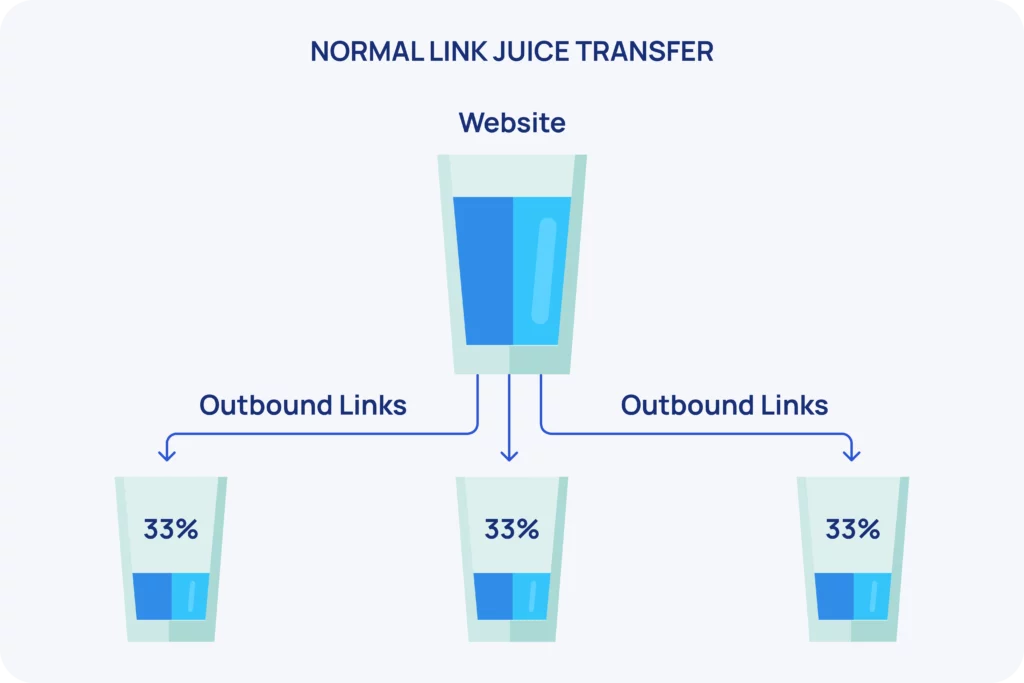
However, not all links carry the same value.
A link from a reputable, relevant site will have more impact than one from a low-quality source. Even small details, like where the link is placed on the page, can influence how much value gets passed along.
So, link juice is basically website cred - it’s how the internet spreads the love, SEO style.
More About Link Juice (AKA Link Equity)
It’s also called link equity. This, however, is a "coined" term, and while you won’t find it directly in Google’s official guidelines, its concept is embedded in how Google’s algorithms evaluate pages.
It’s pretty straightforward: the more authority a page has, the more value it can share with the sites it links to. Pages that collect a lot of this authority tend to rank better in search results.
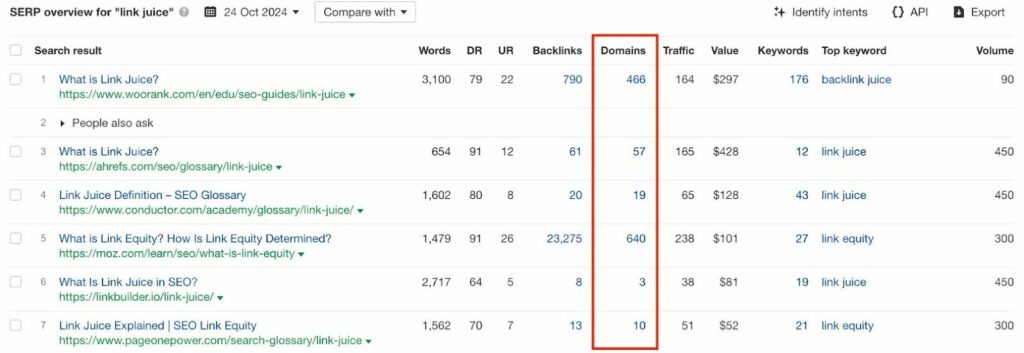
So, when a high-authority page links to yours, it’s like sharing some of that page’s ranking power with yours, helping it get noticed by Google.
How Does Link Equity Work?
So every page has a certain amount of 'equity' based on the links it gets from other pages. When you link from that page to another, you pass some of that equity along. This happens whether you’re linking to another page on your own site or to a different website.
The value that gets passed isn’t always the same. It depends on things like how relevant the linking page is, how many other links are on it, and how trustworthy that page is in general.
In short, the more relevant and trusted the linking site is, the more value it shares.
If you use your internal and external links strategically, you can spread that value across your site and give yourself a better shot at ranking higher 😉
How Does Link Juice Affect Rankings?
We’ve all seen it - sites with a ton of link weight tend to sit at the top of search results. Is it a coincidence? Of course, not.
Google ranks pages with more link equity higher than those with less.
📊 According to a study by Backlinko, the top result on Google has about 3.8 times more backlinks than those in positions #2 to #10.
Lately, however, I’ve noticed that more backlinks don’t always guarantee a higher rank. It’s not just about quantity anymore.
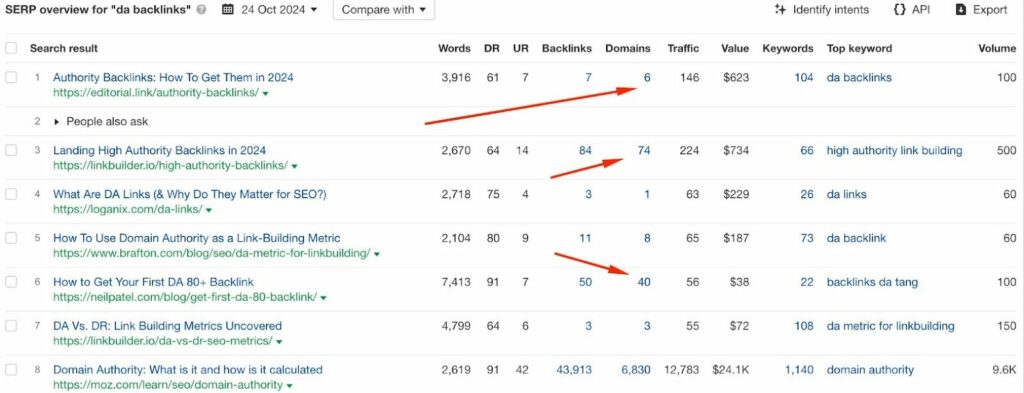
Now, picture this: two sites, both equally optimized, but one has a few backlinks (say, 3-5), and the other has none. In most cases, the one with links will rank higher because it carries more equity.
On the flip side, if one site has 20-30 low-quality links and another has just 2-3 solid, relevant backlinks from trusted sources, the second one will likely win out. After all, Google cares more about quality and relevance, not just sheer numbers.
Factors That Affect Link Equity
So, what makes a link valuable?
6 key factors.
- Link Relevance
- Domain Authority
- Page Authority
- Dofollow/Nofollow
- Number of Outbound Links on the Page
- Link Position
These details can significantly impact your rankings, from the authority of the linking page to where the link is placed.
That said, let’s get to each of them.
Link relevance
If the page linking to you covers similar topics or is in the same industry, that link is worth more. For example, a tech blog linking to your tech article will have more value than an unrelated site. Google loves relevance.
Domain authority
Links from high-authority sites, like HubSpot, carry more weight than links from less established sites. The stronger the linking domain, the more value it passes on to your site.
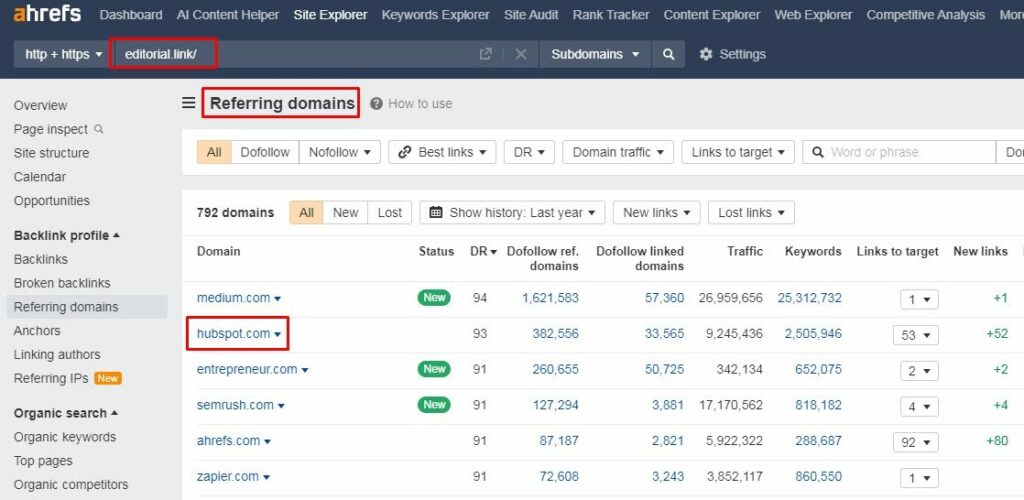
Page authority
Not just the domain, but the individual page matters too. A link from a page with lots of traffic and strong rankings will transfer more value than a page with little engagement or weak backlinks.
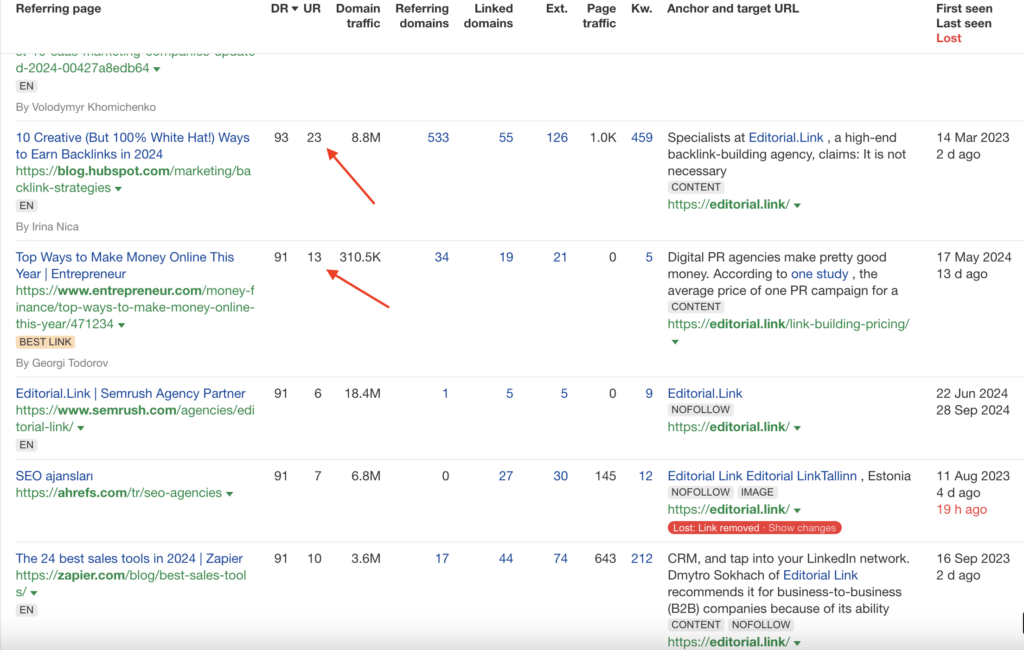
Dofollow vs. nofollow
A dofollow link tells Google to pass on link equity, while a nofollow link doesn’t. Dofollow links are the ones that really help with SEO, but don’t completely write off nofollow ones—they can still bring in traffic and get your site noticed.

Number of outbound links on the page
The more links a page has, the less value each one shares. If a page is referring to tons of different sites, the impact of each link is reduced. On the flip side, when a page only refers to a handful of sites, each one gets a bigger slice of the pie.
Position of the link on the page
Where your link sits on a page also matters. Those placed within the main content or higher up are generally more valuable than those tucked away in the footer or sidebar.
How to Improve Link Juice
Want to increase the weight of your pages and improve your site’s ranking?
Here’s your quick plan:
Build high-quality links
Focus on getting backlinks from reputable, authoritative sites. The more relevant and trustworthy the linking site is, the more value it passes to your page.
Create linkable assets
Publish content that’s valuable, informative, and worth linking to—think guides, studies, or unique insights. Linkable assets naturally attract more links from other websites.

According to our link building survey of 500+ SEO experts, linkable assets remain one of the most effective link building tactics for 12% of respondents.
Guest post on relevant sites
Writing guest posts for industry-relevant websites helps you gain high-quality backlinks. Make sure the content is valuable to their audience, and your links will have more impact.
Use internal linking wisely
Internal links are key to distributing equity across your site.
For example, if you want to promote a landing page that doesn’t attract backlinks, refer to it from internal pages with strong external links. This will pass weight to the page you want to rank.
Focus on page authority
Pages that rank high and have strong backlinks can pass valuable link equity to other areas of your site. Make sure to strategically link from these pages to those you want to promote.
Ready to Power Up Your Link Juice?
Link equity is the value passed between websites, impacting search rankings. Factors like authority, relevance, and placement influence how much value is transferred. Focus on quality, valuable content, and smart internal strategies to increase this value.
If you’re unsure where to start or don’t have the resources to build effective links, we’ve got your back. At Editorial.Link, we specialize in creating top-tier link-building strategies that drive impressive results.
Reach out to us today and let us handle the heavy lifting to help your site climb the ranks 😉

